In IoT Development
The five biggest technology trends that every business of any size needs

Futurist

Any modern business, be this a startup or a an established business of any size, really has to get ready for these tech trends in order to prepare for the future and to be competitive in the future.
As a futurist, I help companies do this. I help them to understand the biggest technology trends, and iI have just written a book called "Tech trends in practice", in which I look at the 25 biggest technology trends that will define the next 10 years.
But what I want to discuss now is really to look at the more short term and say: okay, what are the really important ones that every business has to worry about right now, and prepare for, and start to use?
Those five technologies are:
- Big data and artificial intelligence
- Robotics and vehicle automation, and overall automation things like drones and and self-driving cars
- Cloud computing revolution
- Faster networks and 5G
- Extended reality which includes augmented, virtual and mixed reality.
What I want to do is to really give you a flavor of why those technology trends are so important and, most importantly, give you some practical examples of how you can now use those technologies and why they matter as much as i believe they do.
Big Data and Artificial Intelligence
Let's start with big data and artificial intelligence. I believe that artificial intelligence is, in fact, the biggest, the most important technology trend of all (and I talk about this in my book). Big data basically feeds artificial intelligence, and those neural networks we need to have data to make AI work, but we also need to have AI to help us use this data better.
Lots of organizations have unprecedented amounts of data available, and we can now use AI to actually help us analyze this data and extract insights. When it comes to AI and big data, I like to look at this in different categories in terms of how organizations can actually use it.
Decision making
The first one is to improve your decision making. Companies like Google do this very effectively: they actually start the very top of the organization at the board level, and say "OK, what are actually the biggest unanswered questions we have as a business? What information do we really need to help us make better informed decisions?"
They define questions, and those questions are then translated into meaningful data sets, that are provided to the board to help them make better decisions.
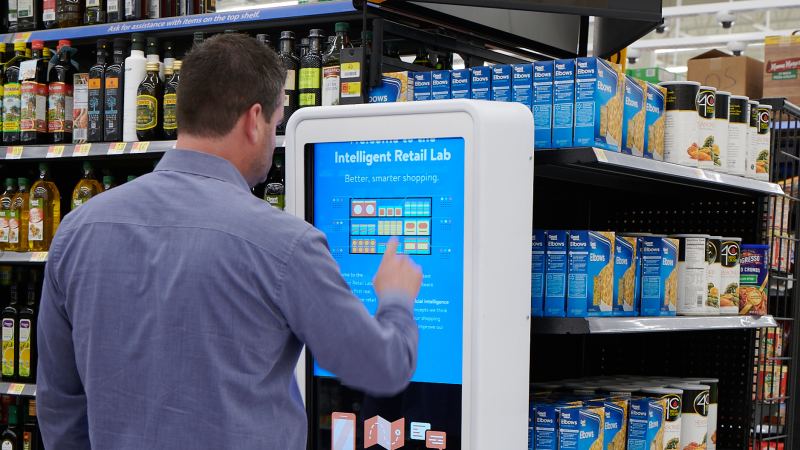
AI technologies in retail
In other companies like Wallmart, the world's largest retailer, what they are doing is they realize: "actually, we want to give everyone access to data". And they have a huge data lake that has petabytes of data, and want to make sure everyone uses it, but they realize actually they need to give people a bit of hand holding here, and a really nice idea that they created is a data cafe. This is a bit like a physical Starbucks - now a virtual Starbucks - where you can go and grab yourself a coffee, sit down with a data scientist, and say: "I've got this business challenge, I've got this question, how can we use data have we got? How do I analyze this data to turn this into insights?".
Know your customer
Very closely linked to this is our is the understanding of our customers. This is another really important area where we can now use big data and AI and where we now have more data than ever before.
If the coronavirus pandemic has taught us one thing, ut is that data has a shelf life.
Even companies that had 10 years worth of data suddenly realized the world is changing so rapidly, lockdowns are happening and we're getting out of lockdowns, consumer behaviors are changing, people are shifting to online and so on, and what companies are now doing is they're relying more on real-time data on streaming analytics to really understand what is happening.
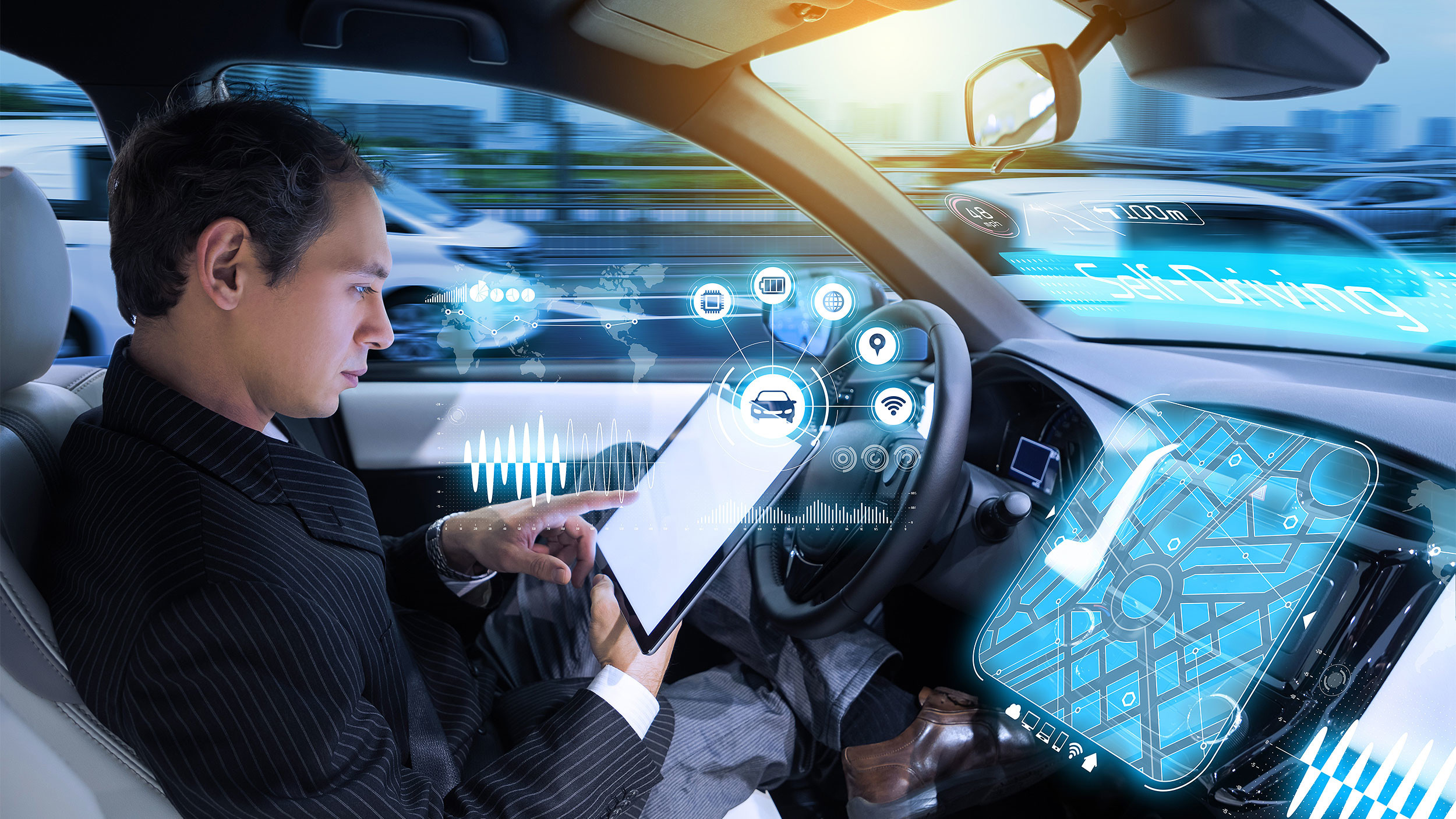
Big data and car producers
We see this in in companies from traditional businesses like Jaguar / Land Rover that now collects data from their cars to really understand how we use them to companies like Disney that really understand how we consume their services.
Smarter products
The third angle when it comes to big data and AI is to think about how we can build data and intelligence into our products and services. What we're now seeing is that consumers want smarter products in the future. If your product and your service isn't using data, isn't using artificial intelligence, it would be very difficult to compete, because even toothbrushes nowadays have artificial intelligence built in. If you look at the latest Brawn toothbrush, it gives you feedback on how well you've brushed your teeth.
In banking we now have smart banking apps, we now have companies that have launched a chatbot here in the UK that allows customers to get wine recommendations, so if I want to find the best wine that goes with a certain meals you can now do this.
Data as an asset
The next one to look at is your own business processes. We can now automate them, and AI has come such a long way - we can now use data feed the data into the artificial intelligence systems, that can now do things that in the past only humans could do. We now have machines that can write. I write for Forbes, I have a regular column in Forbes, but also artificial intelligence algorithms write for Forbes, and they produce these analyst reports that read really well, that I can't tell that they have not been written by a human being!
We need to rethink our processes and, finally, when it comes to data and AI, we need to think about how we might use data as an asset that we can monetize.
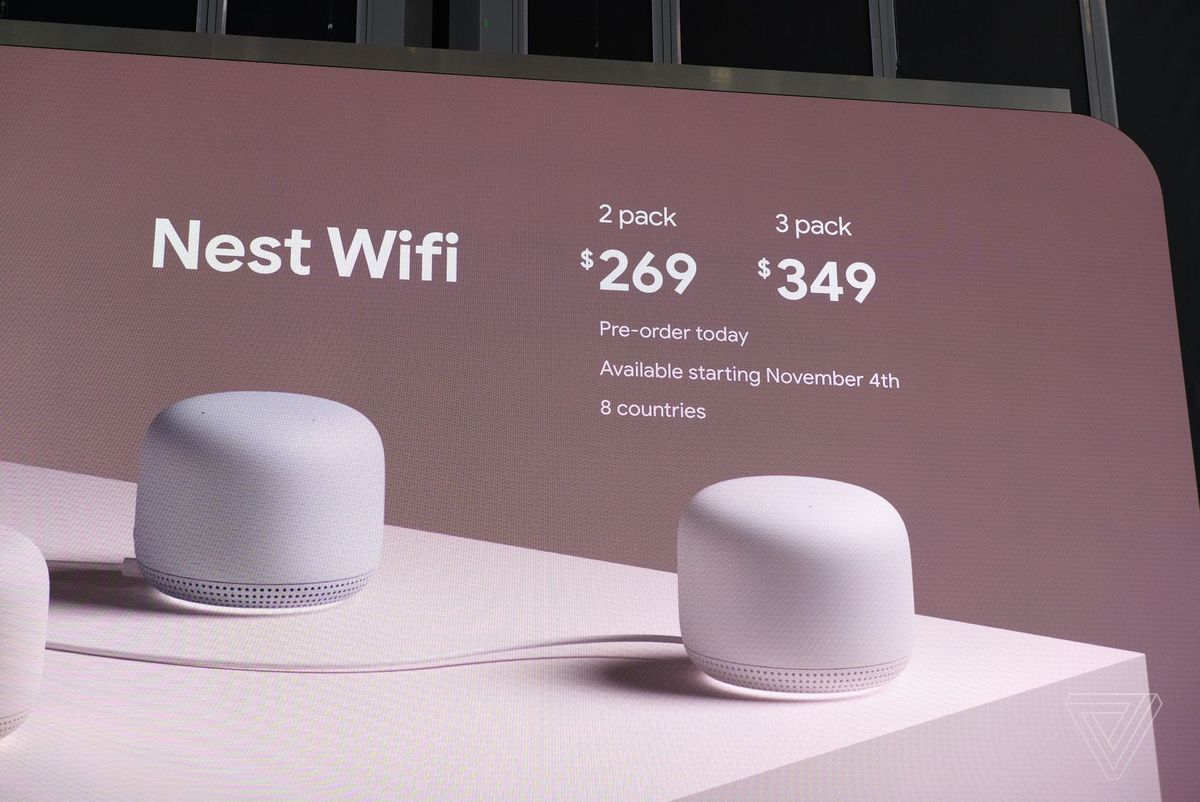
Nest from Alphabet
Companies like Nest (a Google subsidiary that produces the smart thermostats) - they are now able to sell some of their insights to energy companies to get a much better understanding of how they can optimize their grids.
I now work with a number of telecom companies, and we've set up some monetization departments there saying "okay, we have lots of location data, we see where people move and how they move, and we can sell this". There's a really good example I've recently written about is - Cosmos AI - and what they're doing is they're collecting data from a billion smartphones across the world, and they're getting anonymized data from our apps from over 400 000 apps and 300 000 actual stores.
There's this location data they're getting, and some of the user information they're getting from these apps they can then sell to retailers to really understand how customers are using their store and how this fits into their overall patterns of usag.
AI and big data for me is the the biggest trend. Every company on the planet needs a data strategy, and they need to figure out how they can use artificial intelligence in the various different ways i've outlined.
Robotics
Closely linked to AI is my second trend, which is robotics, drones and vehicle automation. This is all about using robots and, again, lots of examples from the Boston Dynamics robot called Spot to cleaning robots that clean the the airport terminals in Heathrow airport every night as soon as people leave. These robots will sanitize the entire airport!
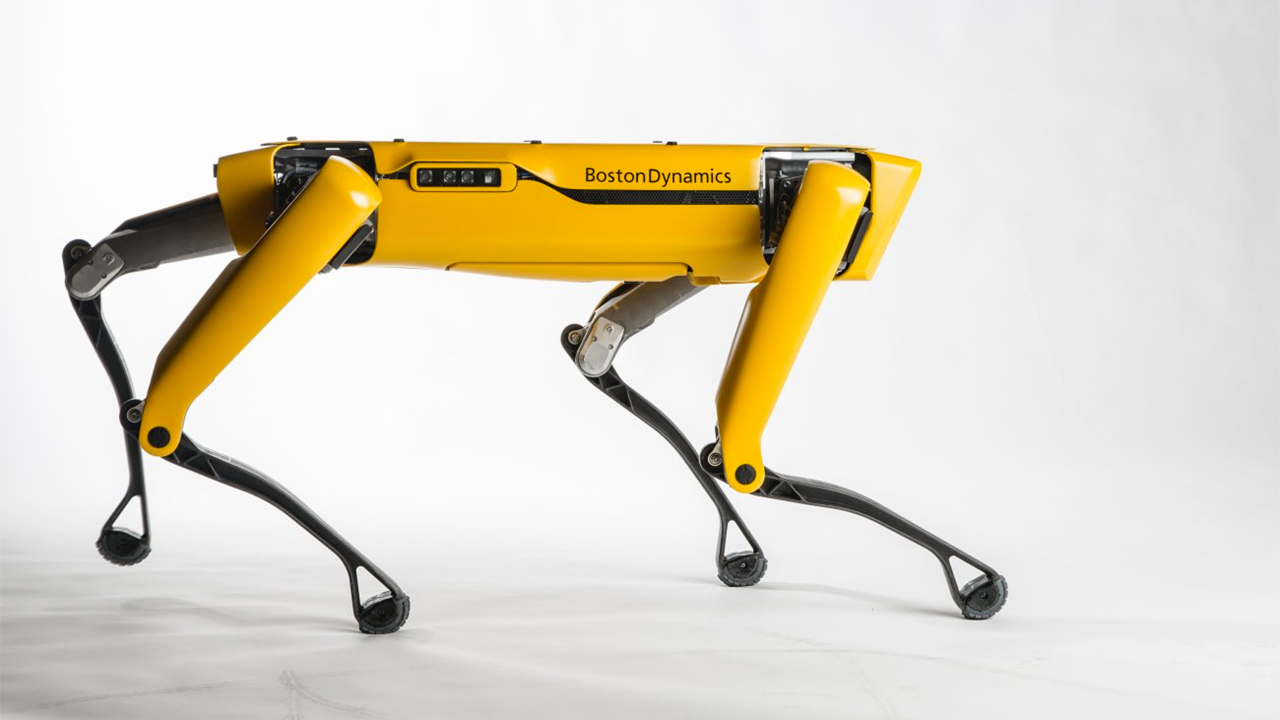
Spot from Boston Dynamics
We see this across entire supply chains now, where we have automated warehouses, where we have self-driving trucks and even self-sailing ships! I've recently written about the latest Mayflower ship that has just left the UK and is attempting to cross the Atlantic completely independently and autonomously/
Companies like UPS are already partnering with self-driving truck companies to transport cargo across Arizona in the U.S., and Daimler trucks is partnering with Torque robotics to use self-driving trucks on public highways in Virginia.
Drones
Where I live, we have little robots that look like little fridges on six wheels, that deliver my shopping to my house, and this has become a completely normal part of our lives here, and and we now see even drones being used for delivery.
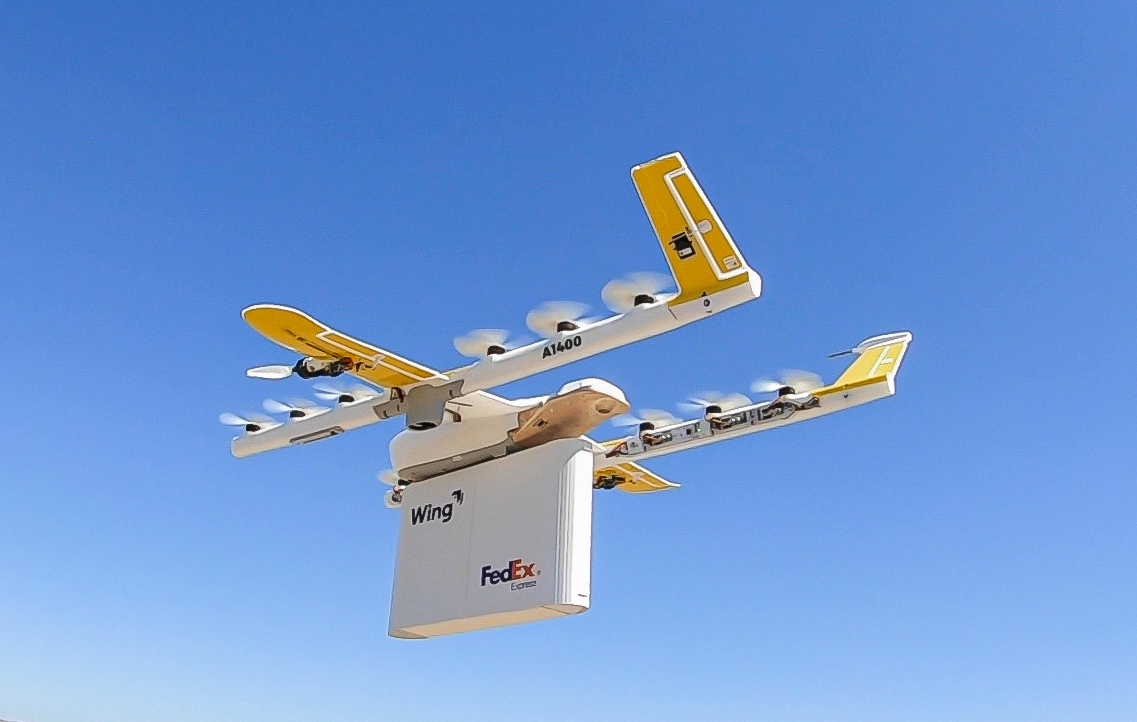
Wing drones and FedEx
Things like Wing Aviation (a Google subsidiary) that has now been granted a license to use drones to deliver parcels obviously will affect transportation. We see this already that Waymo, another Google subsidiary, is already operating self-driving taxis in California, and one of my favorite example is actually a self-driving passenger drone. Companies like Volocopter - they are sponsored by Daimler - that now operates a self flying passenger drone service in Dubai, and one of the leading companies in the world is a chinese company called Ehang, they are now opening a hotel that has the self autonomous drone taxi service, so you are taken to this little peninsula where the hotel is by a self-flying drone. You can do drone excursions, and so on.
Automation
We see automation impacting everything from health care - we can now do robotic knee replacements and hip replacements - to anything else in between. There's now a 400 year old temple in Japan that has a robotic priest, and even a French nightclub that has a robotic pole down.
Cloud Computing
My next trend cloud as-a-service and cloud computing revolution. What this means is that the things I just talked about - data and AI and robotics - are all available as a service, and we're used to as-a-service solutions. We see this with using Google teams, we see this with Zoom calls, we are already used to using Microsoft Office 365, which is completely cloud-based, and we have a document management systems like Box that we're using, or the marketing cloud the Salesforce is offering.
Or, if you are a retailer and you want to use the same algorithms and the same artificial intelligence that Amazon uses to recommend product, you can simply sign up for this. You ship the data into their cloud platforms, and they will give you the AI.
What i'm saying here is that artificial intelligence and big data analytics is now available on a click of a button. as a service where you don't even have to think about your own infrastructure and your own skills and talent.
Robots as a service
The same is true for robotics and automation. Companies like Google, Amazon, Honda are all offering robots as a service platforms, where you basically say "okay, I want a warehouse picking robot, I want a security robot, I want a robotic receptionist in my office". They can bring you it. You choose the robot you want, and they will install it, program it for you, and then you lease or rent the product as long as you need it. If you decide you don't want it anymore, you give it back.
We are seeing this now where lots of companies are rethinking what it actually means to operate. How do we use AI, big data, robots and cloud computing is making companies have to rethink their own processes.
5G networks
The next trend is faster networks and 5G. This is another enabler that will make all the previous trends work better.
We now have experienced this home working transition, where many of us work from home offices, and what companies are now doing is they're rethinking this and saying "okay, maybe this hybrid working environment where we don't go to the office every day is likely to stay for the foreseeable future, maybe forever".
Maybe we have to really rethink our offices, but it also means we need to rethink our home environment, and I have seen colleagues and people I've worked with that they didn't really have strong internet connections in their homes, they didn't have the setups, and I believe things like 5G will make this so much easier!
We're now rolling out 5G, and what will happen with 5G is that we will have immensely fast internet connectivity, mobile internet connectivity. In the past we had to rely on optic lines into our homes. If we have 5G coverage we we don't actually need this.
And this again is giving rise to new services, where companies can completely rethink their operations.
We've now seen this from companies like Sony, Microsoft and Apple.
Video games
The on-demand video games - this is for me the next big transition. In the same way we've seen this in music and film, we're now seeing this in video games, where in five years time people will think "oh, it was a crazy idea to buy a $500 console or a thousand dollar console and put this into our houses, when we can simply stream games", and and 5G will enable this and make it available anywhere on the go.
You then have really powerful gaming potentially available on your mobile when you walk around, and and this will give companies another push to rethink their digitization.
(Fish) face recognition
One of my favorite example comes from Norway. There's a salmon fishing company company called Cermaq, and they use five-G to connect the sea pens where they have the salmon, and breed the salmon, and grow the salmon, and what they wanted to do is to use technology to make this better. In the past it was very difficult to monitor the health of the salmon, because you had to spot, check them, you had to get some out and check if they have got any diseases, allergies. It was very difficult to pick the ones that have a disease and separate them from others. The other problem was that salmon grow differently because the strong ones (that can fight for the food) grow really well, and the weaker ones stay behind. You don't get the perfectly sized salmon each time. They now use technology - one of my favorite examples - face recognition for salmon, so you can now use a camera that is linked up via 5G to a cloud server back at the base, that now uses face recognition. It will only feed someone that have not eaten before!
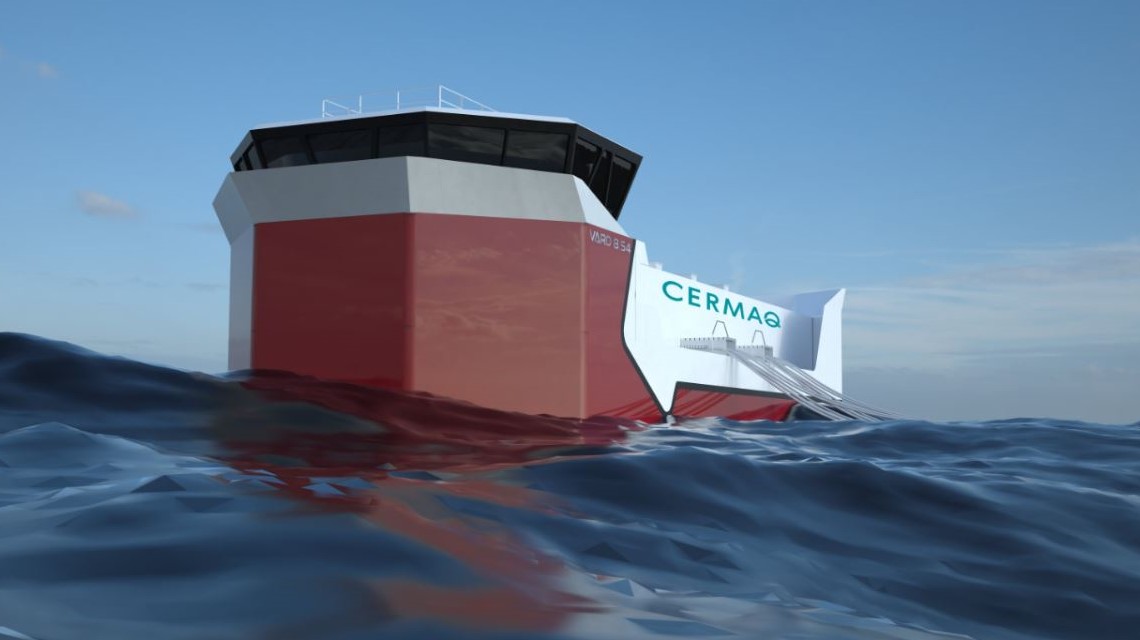
Salmon farming in Norway using 5G
Even traditional companies like salmon fishing and salmon farming are being transformed by all of this technology.
Extended reality
My last trend is extended reality - especially now, when people are not going to shops to try things out. We can now use augmented and virtual reality to do all of this we can try before. If you're thinking about buying the latest iPhone, you can now project this using augmented reality into your living room, and you can walk around and zoom in and out and see if this the product you want.
We see this in cosmetics, where companies like l'Oreal are offering augmented reality apps that allow you to try on different makeup styles, different colors - it is a bit like a Snapchat filter, but slightly more sophisticated.
You can try different haircuts, you can try clothes and, I believe, in the future you will have a digital avatar of yourself, where instead of going into a shop and trying things on you can have your body scanned, or you can give a digital company all your measurements, and then you can try on clothes virtually. You can actually walk around yourself, see what does the suit look like, and, instead of being somewhere in a dressing room, you can project yourself into an office environment (or into a conference setting).
What would this suit look like (or this dress looked like) if i'm wearing it in this setting? Or another setting.
It will completely transform how we consume, how we buy, how we try before we buy, and companies like Ikea are already using it. We can place augmented reality versions of furniture into our homes to see whether they will fit or not.
Some of the technology that is coming along now with the latest smartphones things like lidar technology will enable us to use augmented reality much better, and companies like Dulux allow you to paint your house with any color that you want to see what really suits and what works.
It will help to engage customers in a completely new way and, again, 5G will mean that this can be available anywhere.
So, thse are my five trends. Hopefully, they are interesting and useful. Thank you very much for reading!

